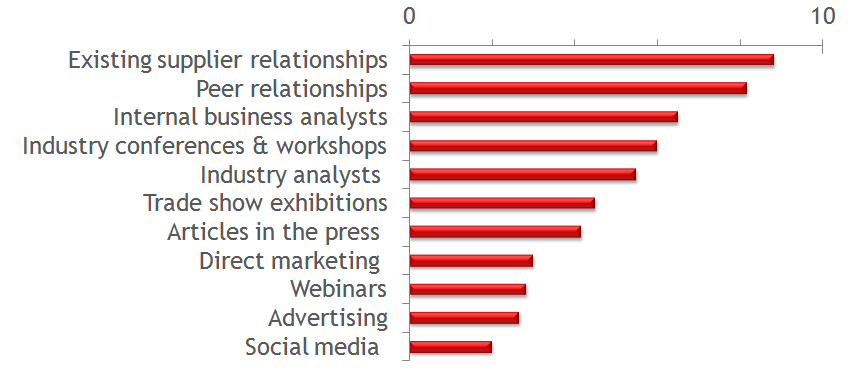Like the spurious claims companies make about being “innovative”, of which I’ve written much before, there are plenty of organisations that claim to be “thought leaders”. But how can you tell if they really are? Because they say so? What does thought leadership actually mean, and why is it important?
A very loose definition might be someone [or an organisation] who demonstrates progressive and innovative ideas. Sounds fairly obvious, doesn’t it? Thought leadership is important in the telecoms industry – especially amongst niche players and new market entrants – because the clamour and competition for attention can be withering and thought leadership can help elevate an organisation to a point of prominence.
We have a poster on the wall in our office that says “Demand Evidence and Think Critically.” Some clients that I work with have come to know me as “the one who asks difficult questions.” Questions I often ask include “Why is this thing different to the last one you made?”, “Are you really truly the only company doing this? It looks like something company Y did last year,” and “Why are you doing this? Who benefits?”
I think demanding evidence is important in telecoms PR; not because I enjoy being a pain in the neck, but if you’re going to claim to own a position or an original thought, you have to be able to prove it and justify it. And more importantly, it’s not just me that believes this – your customers do too. Called ConneCt, CCgroup undertook a comprehensive analysis of operators’ procurement processes, interviewing both operators and their advisors as well as examining market influence studies. The goal was to reveal the communications platforms that drive vendor inclusion in operator procurement, the influencing factors when shortlisting, and the critical factors in vendor selection.
How Operators identify vendors
Since operator customers are often on the receiving end of much of our output, we asked them whether they perceive thought leaders as a ‘safe bet’. Naturally there were a mixture of answers but what became very clear very quickly in conversation was that saying “this thing or product or idea shows we’re a thought leader” is simply not enough for most operators, and your chances of attaining that important level of prominence and trust are severely undermined.
These responses were qualified, though. It turns out that operators value thought leadership in prospective suppliers’ telecoms PR; but they do need some degree of proof that the claim is grounded in reality and qualified through fact. For example, one respondent said: “Thought leadership can only really be a safe bet if it’s followed up and supported by the other aspects surrounding a company, e.g. stability, proven ability to deliver, etc. Being a thought leader alone is not enough – you still have to prove you can deliver.”
How Operators Shortlist Vendors
So do you think you’re a thought leader? Can you qualify your claims? Do they stand up to scrutiny? If you think you’re a thought leader but aren’t getting the attention you deserve, or it’s not delivering sales opportunities for you, let’s talk.
Duncan McKean, Account Director with GlobalCom PR Network Partner, CCgroup. CCgroup is a public relations consultancy based in London, UK.




